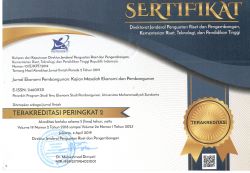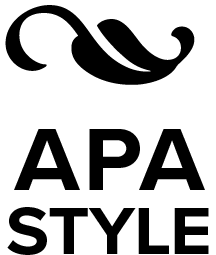INDUSTRIALISASI DAN PERDAGANGAN: TANTANGAN INDONESIA DALAM ERA AFTA
Endang Sudaryati(1*)(1) Dinas Perkebunan Propinsi Jawa Tengah
(*) Corresponding Author
Abstract
The target and trend of industrial and trade development in Indonesia, particularly related to overseas trade, is broadly influenced by the various challenges time to time, but mainly is influenced by international market and economy.
Trade liberation which is marked with the establishment of World Trade Organization (WTO), and followed by the establishment of free trade territory such as APEC and NAFTA has created regional economic integrity. While AFTA which aims to create free trade in ASEAN territory through payable reduction will make manufacture sector in ASEAN more efficient and more competitive in the global market.
Though the government and public sectors is loyally commit toward the implementation of AFTA, but in fact it is true to say that some another sectors are not ready yet to implement it. Therefore, in order to supporting this commitment, so industrial and trade sector should compete each other, being more efficient and improving the quality of their product.
According to the statements above, the best way in observing AFTA is to make it as apart of long-time process to go into WTO. It is hoped that AFTA will provide the same opportunity for Indonesia to put its products relatively as other ASEAN members before enter global free trade market.Keywords
Full Text:
PDFReferences
Arsyad, L. 1997. Ekonomi Pembangunan. Edisi 3. Yogyakarta: STIE YKPN.
Asean Secretariat. 2002. (Online), (http://www.asean.or.id, tanpa waktu akses)
Department of Foreign Affairs, RI. 2000. An Official Handbook Indonesian Embassy, Ottawa, Canada.
Indonesian Business Perspective. 2002. AFTA 2002 and Beyond: Opportunities and Challenges for Indonesia. Harvest International's Journal for Decision Makers. February. (Online edition), (tanpa alamat website, tanpa waktu akses)
_____. 2002. Consequences and Challenges. Harvest International's Journal for Decision Makers. February. (Online edition), (tanpa alamat website, tanpa waktu akses).
______. 2002. The CEPT. Harvest International's Journal for Decision Makers. February. (Online edition), (tanpa alamat website, tanpa waktu akses)
Kamaluddin, R. 1999. Pengantar Ekonomi Pembangunan. Jakarta: Lembaga Penerbit Fakultas Ekonomi, Universitas Indonesia.
Moreno, R. 1996. Pacific Basin Notes: Trade Liberalization in the Pacific Basin. FRBSF Economic Letter.
Pack, H. 1988. Industrialization and Trade In: Handbook of Development Economics. Vol. 1. H. Chenery and T.N. Srinivasan (Eds). North Holland: Elsevier Science Publishers.
Simamora, A.P. 2001. Will AFTA or won't AFTA? The Jakarta Post Sunday. January 6, 2001.
Article Metrics
Abstract view(s): 1302 time(s)PDF: 981 time(s)
Refbacks
- There are currently no refbacks.
















